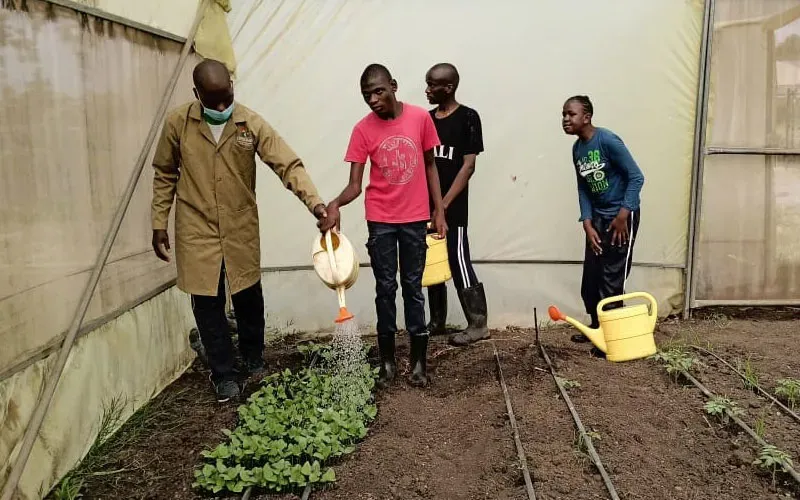It was also noted that many families still hide their children in their houses and only seek help for them when it is too late.
“As a result of stereotypes, ignorance and lack of resources, many parents keep their children at home in the early years which are the most important for therapy such that when they bring the children to the centre, it is always a bit too late and very difficult to intervene,” Richard Manyara, the Project Manager at Orione Community Training Centre, said.
Margaret Ngando, a mother of three whose first born daughter has cerebral palsy admitted that it took her two years to accept and love her only daughter.
“She was my first child. I had never experienced motherhood before and to get a disabled one for me was a heavy blow,” Margaret told ACI Africa.
She added, “It took me a long time to accept my own child; roughly two years. And it took a lot of counseling. It isn’t easy, and I can confidently say that 90 percent of parents with children living with disability have had a similar experience. It is sad that some parents never come around.”
(Story continues below)
“It starts with us,” the Kenyan mother of three said, and added, “If we accept and love our children, other people will love them. If we get them out there, they will get the intervention they need and the skills they need to be self-reliant.”
James Ayunga, an occupational therapist at the Catholic special needs school said that while progress has been made in urban areas in terms of promoting understanding of disability issues and mobilizing support for well-being of persons with disabilities, a lot of sensitization is required in the country’s rural areas.
“I was among the Pokot (a tribe in Kenya) and I saw children, up to 15 years’ old, who had never seen the outside of their houses. Most of them were malnourished. Their families had never made any connection with them and they were willing to give them away,” Mr. Ayunga said.
To ensure that children living with disability get help while they are still young and “malleable”, doctors from Chile have created an office at the Kenyan Catholic school to ensure that various forms of disability are detected early and addressed appropriately.
The doctors who spoke to ACI Africa on Monday, November 29 noted that intervention in children living with disability is most effective when applied early.
This story was first published by ACI Africa on 1 December 2021
Agnes Aineah is a Kenyan journalist with a background in digital and newspaper reporting. She holds a Master of Arts in Digital Journalism from the Aga Khan University, Graduate School of Media and Communications and a Bachelor's Degree in Linguistics, Media and Communications from Kenya's Moi University. Agnes currently serves as a journalist for ACI Africa.








